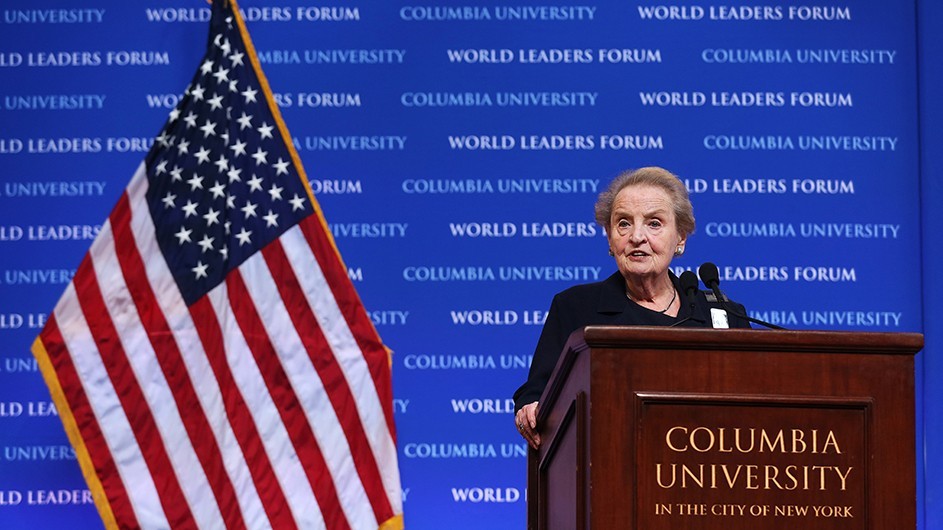In the heady post-Cold War days of the 1990s, Madeleine Albright was a unique inspiration not only for all those in the world of international diplomacy, but also for the Columbia PhD students, and especially for the women. She was working at the heights of a world that was seemingly ready and waiting to be re-imagined and re-invented. As US Ambassador to the United Nations, and later the first female US Secretary of State, Madeleine Albright was also helping to build a new order that many of us had chosen to research. At Columbia, we also sat alongside our faculty who themselves were challenged to reinvent and rediscover a field of international relations that could thrive in a post-Cold War world.
Madeleine Albright also held a very personal place in our imagination as Columbia students. For those women among us, the knowledge that she had made her way through the Columbia PhD program, during the very masculine days of the Cold War, provided a steady stream of quiet inspiration. As UN Ambassador, she came uptown to speak at the School of International and Public Affairs. Her personal strength, passion for international peace and justice, good humor, and command of the room resonated. She was both formidable and also one of us.
Madeleine was a trailblazer. It was her healthy disregard for established norms, personal, professional, and for the world, that marked her out as a force to be reckoned with. She spent her international career working to create an international order whose contours were no longer obvious.
Her personal journey was also one of norm-busting. She showed us that the stark trade-offs that generations of women had faced were not carved in stone. Her career began "late." She had three daughters and was by one stage a single mother. Her role as one of the world’s leading female public servants came later. She developed a reputation for mentoring women, organizing regular meetings for her female colleagues at the UN and State Department, and investing in programs at Georgetown and Wellesley to teach women leadership skills. Her journey showed women, and especially the Columbia alums, that one could dare to hope. That not everything need conform to a single narrative or a single path.
In the last decades of her life, many of us had the good fortune to share an audience alongside Madeleine Albright. Having left public service, she embraced her role as an educator, “More than any other activity, teaching embodies my sense of who I am and what I aim to be,” she said. She traveled to our new places of work to speak, she embraced her Georgetown students and all those who looked to her sage wisdom because it was both pragmatic and visionary. She often visited London to speak at Chatham House. And she taught us a new version of retirement--as a time to give rather than a time to retreat. As a woman and a leader, she will continue to be a standard-bearer for generations of Columbia PhDs.
